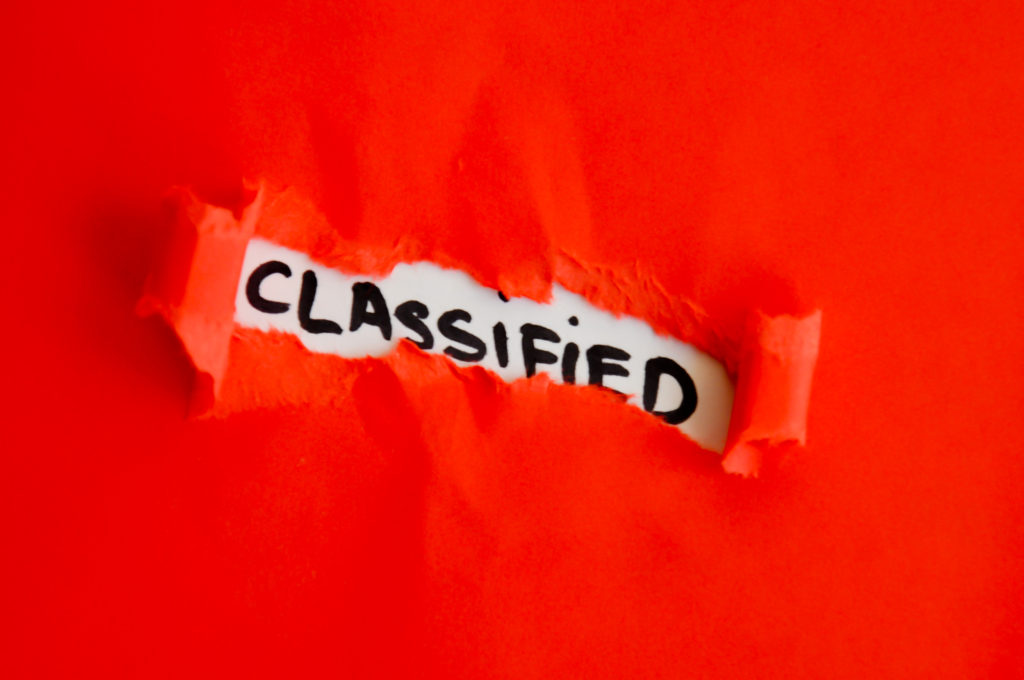10 Media Ground Rules to Use With Reporters
Reporters ask lots of questions. What if one of those happens to be, “Do you have time for a few questions?” Then, we have some media ground rules for you.
During our media training classes, we often hear from clients who are concerned – sometimes even fearful – that they will fail to get their messages across, make a mistake, or say too much while being interviewed by a journalist. Certainly, there are times when a spokesperson may face hostile or challenging questions. However, more often than not, reporters are simply seeking answers to file accurate and engaging stories.
 The 10 media ground rules that follow address the needs of spokespersons and other media guests, as well as accommodate reporters’ journalistic standards.
The 10 media ground rules that follow address the needs of spokespersons and other media guests, as well as accommodate reporters’ journalistic standards.
Before we start, we offer an entry point. All 10 media ground rules flow from this fundamental question: “Should I agree to the interview?” If the story will be written about your organization with or without your participation, then the answer is usually “yes.” You can’t guarantee what the reporter will write, but you can help guarantee that your voice or your organization’s voice, will be represented.
A “no” might be the better response if:
- the topic is not relevant to your work.
- you question whether it is a legitimate news outlet.
- the story is not specifically about you or your organization. Rather, you are being asked to comment on a topic that you’d rather not be associated with, such as failing businesses.
- you gain nothing by doing it.
- the reporter or news organization is so loaded against you, historically, that being absent is better than being present.
With that out of the way, let’s move on to the rules.
10 Media Ground Rules
No. 1 – Pre-interview the Reporter
You pick up the phone and there is a reporter at the other end. Many spokespersons and subject-matter experts are compelled to answer questions immediately. Unless it is a breaking news moment, and you are prepared, it’s generally best to hold off and offer to return the call promptly. The pause allows you to prepare before you speak. But …. before you hang up, take a few minutes to learn more about the reporter and the focus of the story. For instance, you could ask, “Can you tell me about the story you’re working on?” You also can ask how you fit into the piece. Is the reporter interviewing others? Is there any research you need to do prior to the call? (You can find a few others here). You may not get all the answers, but any information is helpful.
After you’ve researched the reporter and prepared for your interview, return their call.

No. 2 – Know the Deadline
It’s best not to wait until the deadline to return a reporter’s call. A deadline is what reporters work toward. And, few journalists enjoy cranking out a story with moments to go. If you wait until the last minute, you likely will reach a reporter who has built up most of the story. At best, you might be able to get a brief comment into the story. Fundamentally, you missed a chance to help frame the story. You could have provided a deeper perspective on the subject or persuaded the reporter to consider an alternative viewpoint or angle.
On the other hand, perhaps you have determined “the less said, the better” is the best strategy. If you offer a short statement close to the deadline, then you can avoid uttering Media Ground Rule No. 3
No. 3 – Never say, ‘No comment’
There is no phrase more damning in a spokesperson’s lexicon. You said it because:
You were gathering your thoughts.
You don’t have an answer.
The answer is a sensitive one that needs further review.
Or, you don’t want to answer the question.
There are many reasons you answered as you did. The public, however, usually only has one impression – guilty as charged.
That’s not to say you must spill the beans. If you suspect there might be a question that would impel you to say such a response – or you simply want to be prepared for all scenarios – set a plan. In other words, develop a response that explains why a “no” comment is your only option (“I can’t say more about this topic because …”). If possible, explain how your discretion is not just for your benefit. An example:
“We do not comment on ongoing union negotiations, because negotiating in good faith means we speak directly to each other rather than using the press as a tool to advance our goals.”
No. 4 – Avoid Off the Record Conversations
 Have you ever told a friend a secret only to learn another friend knows it? What happened? Secrets are hard to keep. In journalism, the idea of confidentiality, what’s known as “off-the-record,” can be problematic. Without a universal definition across all news organizations (even among individual reporters), it’s hard for reporters and their sources to keep it straight. In most cases, we advise our clients to avoid its use.
Have you ever told a friend a secret only to learn another friend knows it? What happened? Secrets are hard to keep. In journalism, the idea of confidentiality, what’s known as “off-the-record,” can be problematic. Without a universal definition across all news organizations (even among individual reporters), it’s hard for reporters and their sources to keep it straight. In most cases, we advise our clients to avoid its use.
Rather, it should be a rare occurrence that is only established as a strategic plan well in advance. Truly, there is no guarantee that you will not be revealed as the source. So, if you decide to go off-the-record, here are some preliminary steps:
- consult with a communications professional in advance
- consider your history with the reporter
- ask the reporter to define what “off-the-record” means to them, and
- forge an off-the-record agreement before speaking — not after you’ve started talking.
No. 5 – Request Questions in Advance
If you request questions in advance, don’t expect the red carpet or consent from major news outlets. However, in some instances, a news organization will agree to send questions before the interview. Typically, these are smaller news organizations, trade publications, and entertainment media outlets. Still, an interview is an interview, and there is no guarantee these are the only questions that you will be asked. Reporters may opt to go “off script,” so it’s best to be prepared for anything.
That said, you could ask whether there’s any specific information or data you should gather to help prepare you for the interview. Most journalists want as complete a picture as possible for their stories and are usually willing to comply with the request.
No. 6 – Hold off on the Proofreading or Rewrite
Sometimes, reporters are asked whether their sources can see a draft of the article before publication. That’s a no-no. Journalists tend to bristle when asked. They are not writing a press release, nor are they under any obligation to share it. You are not writing this story; they are. However, journalists may be willing to read back direct quotes or ask for assistance in fact-checking complicated or highly technical concepts. We now move on to that rule.
No. 7 – Offer to fact-check
 Offering to fact-check a story is different from requesting to see a story prior to publication. Whereas asking a reporter to see a story in advance suggests an element of control, making yourself available to check an article’s key facts is usually regarded as helpful. Sometimes reporters only check back for a single quote. Other times, they need assistance with a larger section.
Offering to fact-check a story is different from requesting to see a story prior to publication. Whereas asking a reporter to see a story in advance suggests an element of control, making yourself available to check an article’s key facts is usually regarded as helpful. Sometimes reporters only check back for a single quote. Other times, they need assistance with a larger section.
In all instances, they are not looking for a rewrite, so much as a review. They seek your assistance and expertise in clarifying a concept or ensuring accuracy.
No. 8 – Record the Interview
The reporter opts not to record the interview, leaving you concerned about off-topic, biased, or hostile lines of questions. You might consider recording your interview. Many of our clients record every interview they do as a matter of policy. Even though many reporters are simply trying to write an accurate, engaging, and compelling story, a source can be misquoted.
On the other hand, most straightforward interviews probably don’t require such vigilance. It’s a move that may come across as overly defensive to the reporter. Also, there are at least a dozen states that require that all parties involved in a recording must give consent.
No. 9 – Watch the Clock
You can limit the time of the interview for a variety of reasons. You simply may not have much time. Or, you may have an inkling that the reporter is digging for dirt. If the interview runs long, it could turn into a harmful fishing expedition.
If you didn’t turn the interview down in the first place, just keep your time with the reporter brief – no more than, say, 15 minutes. Before the interview, establish an exit strategy to extract yourself gracefully if the clock starts ticking past the appointed time.

No. 10 – Stay in your lane
Many spokespersons or interviewees feel compelled to answer every question that is asked. That becomes even more daunting in a high-pressured interview. If a question is off the beaten path, however, it’s perfectly okay that you do not follow. Stay in your lane.
For instance, you are a professor at a state university who is being interviewed about a new technology innovation major at the school. Things are going along swimmingly until the reporter asks for your thoughts about a recent salary hike for the university president. As the reporter is under no obligation to ask certain questions, you too have a choice in how you answer. It could go like this:
“That’s a question better directed to the board of trustees, whose members handle matters of leadership compensation. As a professor, my expertise is about the new academic opportunities that are being offered to our students.”
After your “official” response ends (but remember you are still on the record), you can offer to connect the reporter with a more appropriate person for that topic.
Do You Need Rules?
Yes.
Media interviewing requires a specialized approach. The way you communicate in everyday life is not necessarily the way you address a reporter. These are not casual or informal conversations. More formal conversations benefit from following certain standards.
Even if you have already established a professional and respectful relationship with a reporter, media ground rules can help to keep it that way.
Rules can promote fairness, prevent confusion, establish order, and guide behavior. These 10 media ground rules offer you a roadmap to get from that initial request to the reporter’s final question.


